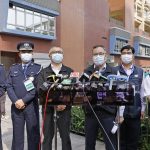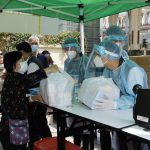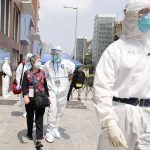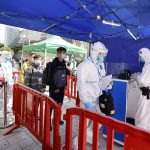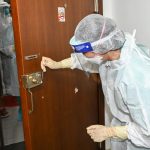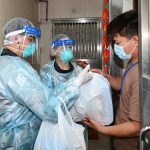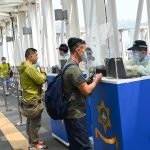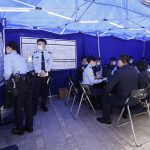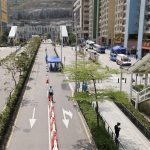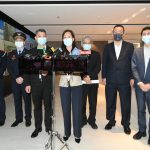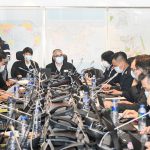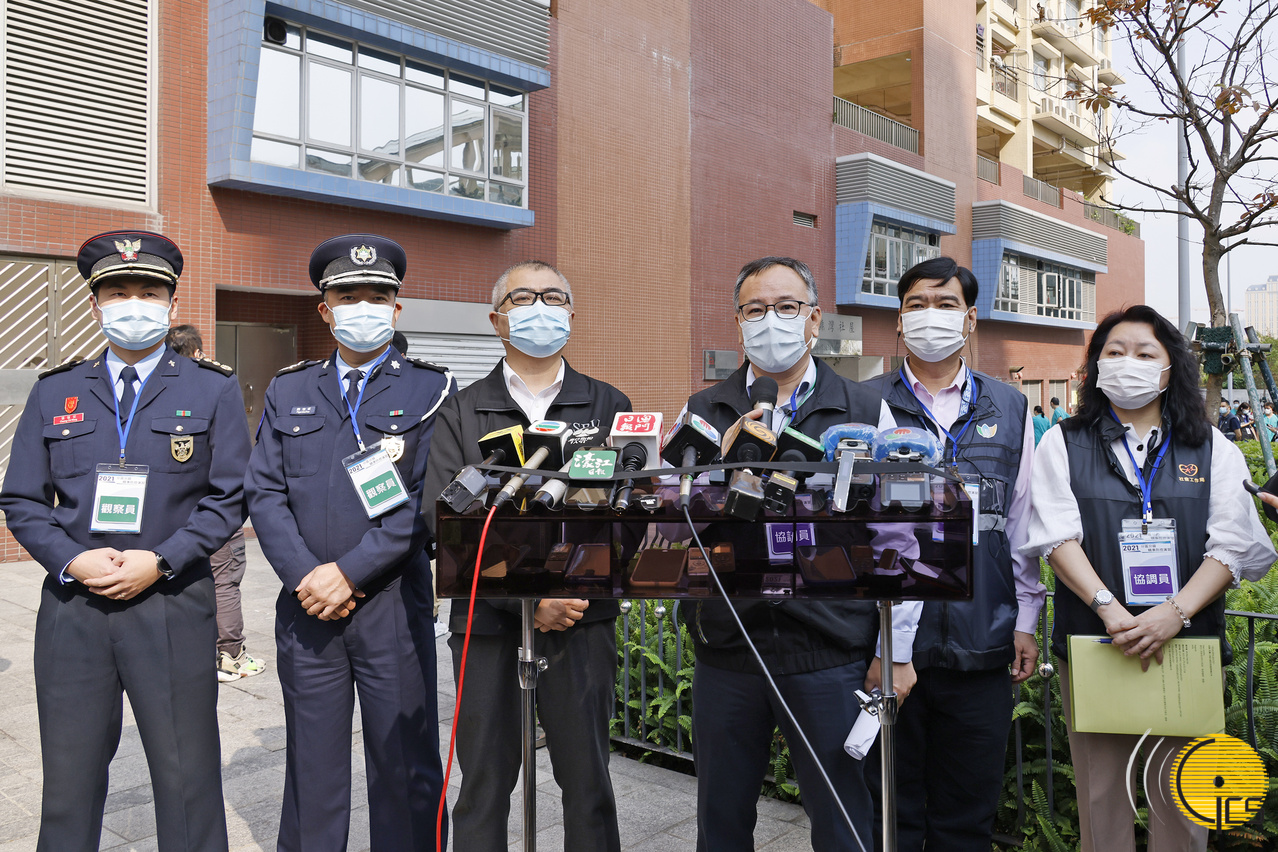 Representative of the Novel Coronavirus Response and Coordination Centre, Mr Lei Wai Seng, and Assistant to Commissioner-General of the Unitary Police Service, Mr Wong Kin, brief the press on the drill to simulate the district- and risk-specific epidemic prevention plan.
Representative of the Novel Coronavirus Response and Coordination Centre, Mr Lei Wai Seng, and Assistant to Commissioner-General of the Unitary Police Service, Mr Wong Kin, brief the press on the drill to simulate the district- and risk-specific epidemic prevention plan.
The Government today held respectively a drill to simulate its district- and risk-specific plan for epidemic prevention, and a tabletop exercise to review the preparedness of the civil protection system. The steps were in order to bolster Macao’s capability to respond to any public health emergency relating to COVID-19.
The two activities were held simultaneously. They achieved their expected results in terms of bolstering interdepartmental communication, while promoting the Government’s COVID-19 emergency-response plan to members of the public, in order to help them cooperate with the Government’s epidemic-control effort.
In line with the strategic goal of “preventing imported cases and a rebound of the epidemic”, the Government has formulated a plan to detail Macao’s overall response to any outbreak. The Government has segmented such response in terms of ‘medium-risk’ and ‘high-risk’ scenarios as defined under the mainland’s classification system. The plan has a set of steps including ‘closed-loop’ arrangements for specific parts of Macao, depending on their level of risk in terms of a community outbreak.
The 2.5-hour drill took place this morning at Lok Kuan Building in Seac Pai Van, Coloane, and involved an aggregate of 550 people from, respectively, the Novel Coronavirus Coordination and Response Centre, the Unitary Police Service, and other public departments contributing to the civil protection system.
The drill simulated a scenario in which the health authorities had evaluated as ‘extremely high’ the risk of the novel coronavirus spreading in the community. Under the scenario, the Chief Executive had ordered full activation of the civil protection system. The aim of such ‘activation’ was not only to help by placing at team members’ disposal the most effective preventive and protective measures required, but also to permit access to a greater number of resources in order to protect the lives and property of the public.
During today’s drill, relevant departments of the Government followed steps outlined in the district- and risk-specific plan. They included: the Health Bureau being responsible for an epidemiology survey, locating possible points of outbreak and possible track for transmission; and the Municipal Affairs Bureau being responsible for disinfecting public spaces at the building identified as having the outbreak, as well as for distributing food packs to those in the building. The Public Security Police Force had the task of cordoning-off the building with the COVID-19 outbreak, and other adjacent areas and managing movement of people and vehicles in and out the restricted areas. The Social Welfare Bureau coordinated operation – or in some cases suspension – of social facilities in the area, and provided services to some building dwellers that had requested assistance.
At the Civil Protection Operations Centre, the tabletop exercise was used to review Macao’s preparedness to handle possible incidents resulting from the district- and risk-specific plan for epidemic prevention, such as panic buying, or traffic jam. This exercise was first-ever public health emergency activated under the civil protection system. Previously, the civil protection system has usually dealt with incidents associated with typhoons.
The exercise was supervised by Vice Chairperson of the Novel Coronavirus Response and Coordination Centre and the Secretary for Social Affairs and Culture, Ms Ao Ieong U; and the Commissioner General of the Unitary Police Service and assistant commander of joint operations, Mr Leong Man Cheong.


